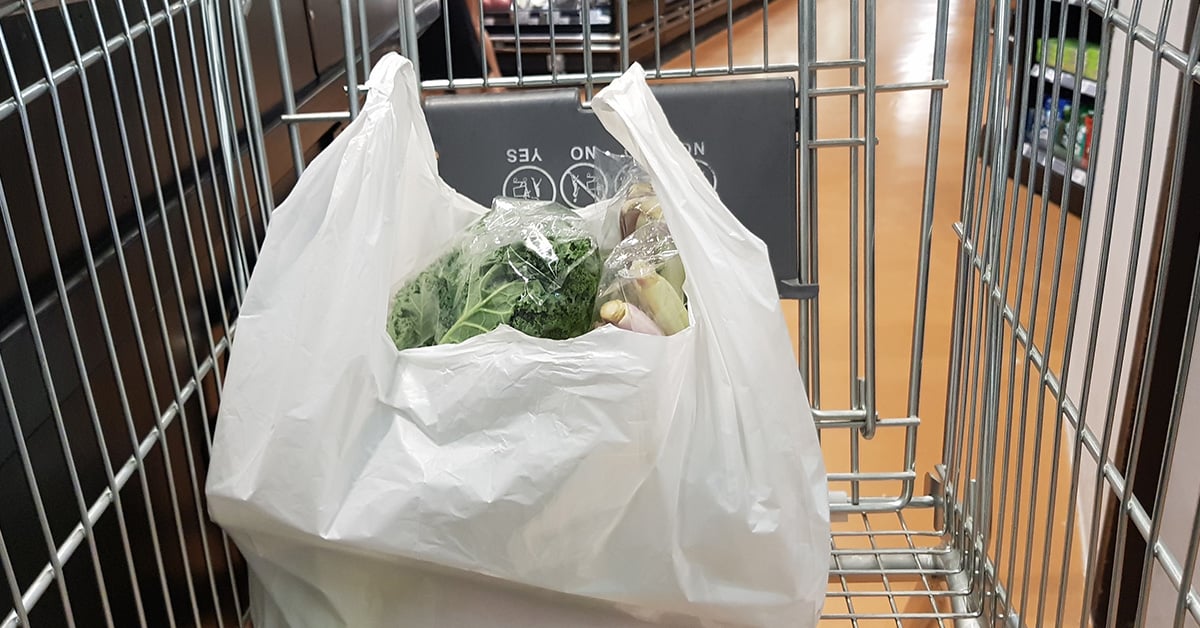Have you ever considered using reusable bags rather than plastic carriers when shopping?
If you haven’t made the switch, now is a good time to do so.
From mid-2023, most supermarkets will charge at least $0.05 per plastic carrier.
$0.05 per Plastic Carrier
The news was first announced in March 2022 by Minister of Sustainability and the Environment Grace Fu.
Two-thirds of all supermarket outlets in Singapore will implement the charge on disposable bags, including those made out of plastic and paper.
Yes, this includes your favourite supermarkets like NTUC FairPrice, Cold Storage, Giant, Sheng Siong and Prime.
It will be mandatory for supermarket operators to be transparent with where the carrier bag charge proceeds go.
Thus, these operators will be required to publish information such as the number of bags given to customers, the number of proceeds received from charging for these bags and how the proceeds will be used.
Reason Behind the Charge
The upcoming charge on carrier bags is one of the many proposed amendments to the Resource Sustainability Act tabled in Parliament on Monday.
If you weren’t already aware, the Resource Sustainability Act is a law which aims to make Singapore more sustainable by introducing guidelines to reduce and recycle waste.
Furthermore, Singapore’s Zero Waste Masterplan aims to increase the country’s overall recycling rate to 70% by 2030.
However, in 2021, only 6% of all plastic waste was recycled in Singapore.
While it is some progress, there is still a long way to go before reaching our target.
The charge is only $0.05 to minimise its impact on shoppers while hopefully encouraging them to be mindful of the number of disposable carrier bags they take.
You’ve probably noticed that the supermarket operators that will charge for carrier bags are big household names.
That’s because larger supermarket operators have the resources required to implement this charge.
Smaller operators are encouraged to implement their own bag charges voluntarily.
Why Should You Bring Your Own Bag?
It may seem like a hassle to bring your own bag when you shop, especially after getting accustomed to having them provided for you.
Some people may even argue that the disposable bags they take home are handy for bagging rubbish.
However, disposables such as one-time-use carrier bags are immensely harmful to the environment.
In 2020, about 200,000 tonnes of domestic waste in Singapore were disposables.
Imagine the amount of waste produced by countries with larger populations.
Another aspect of Singapore’s Zero Waste Masterplan is to reduce the amount of waste transported to Semakau Landfill by 30% by 2030.
It’s alarming that Semakau Landfill will be full by 2035 if we continue the rapid rate we create waste.
Furthermore, plastic carrier bags are not biodegradable and often end up contributing to marine litter.
If paper is biodegradable, why are paper carrier bags chargeable as well?
While paper is biodegradable, the fact remains that in Singapore, disposable bags are either recycled or incinerated instead of being landfilled directly.
This means that disposable bags can potentially cause air pollution and other environmental impacts, even if they are biodegradable.
Other Shops have Already Begun Charging for Carrier Bags
Since 2022, The Body Shop, Cheers, and FairPrice Xpress outlets have been charging $0.10 for plastic bags per transaction.
Fashion giant H&M started this initiative even earlier, charging customers $0.10 for each plastic or paper bag since 2019.
H&M’s proceeds from carrier bag charges are donated to WWF Singapore’s Plastic ACTion (PACT) initiative, which will help fund innovations to search for sustainable alternative materials and research into plastic pollution and other projects related to environmental conservation.
In an interview with The Straits Times back when the news was first announced in 2022, Ms Fu said, “The disposable bag charge is really to send that signal that we all need to be more environmentally minded now.”
So if you’ve been thinking of switching to reusable bags, now is an excellent time to make the change.
Featured Image: Wan Fahmy Redzuan/ Shutterstock.com
